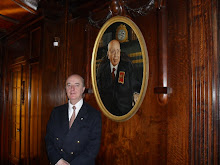23 de septiembre de 2015
Spain and the Catalans must avoid a collision
September 20, 2015 3:35 pm
This week’s election is decisive for the region’s independence bid
O
ne of the biggest tensions in Spanish politics is the demand by a growing number of Catalans for independence from Spain. This Sunday, that campaign reaches a decisive stage when Catalonia holds regional elections. For the first time, the main pro-independence parties are running on a single unified list in order to give fresh momentum to their cause. They have pledged to set up an independent state within 18 months if they win a majority of seats in the Barcelona parliament.
Opinion polls suggest such an outcome is likely. If so, it will take the struggle between Madrid and Barcelona to a dangerous new level. Spain’s centre-right government has taken a robust line against the Catalans, insisting that the country’s regions have no right to determine their political future — let alone secede from the Spanish state. The secessionists, however, say victory on Sunday will see them establishing their own diplomatic service, central bank, tax authority — and possibly even armed forces. Spain and Catalonia would be on a path to collision, something that must be avoided.
Catalonia’s nationalist government is entitled to test the appetite of its people for a break from Spain. The factors promoting a stronger Catalan national identity cannot be ignored. The region has its own language, culture and history. It is one of Spain’s richest regions comprising 16 per cent of its population but almost a fifth of the total economy. It has a similar population to EU members such as Denmark and Austria.
In two respects, however, the current independence drive is flawed. First, the secessionist parties have set the threshold for victory on Sunday too low by looking to win an absolute majority of seats. They should not be entitled to declare any form of victory unless they secure at least 50 per cent of all votes cast. This was the challenge facing the Yes campaign in Scotland a year ago and should be the minimum test in any plebiscite on such a grave matter as secession. Securing 50 per cent of the vote would not deliver independence; but it would send a signal to both Madrid and the EU that the nationalist problem in Catalonia can no longer be ignored.
The pro-independence parties also owe it to the people of Catalonia to be more honest about the costs of breaking away. Separatists claim that when Catalonia stops transferring tax receipts to the poorer regions of Spain, there will be more to spend locally. This ignores many of the challenges the new country would face. An independent Catalonia would need to reapply for membership of the EU and the euro and its entry would be far from guaranteed. It would have an unproven record in credit markets. A declaration of independence would plunge Barcelona and Madrid into an unprecedented constitutional crisis, which would be certain to undermine business confidence.
The FT believes that secession is not in the interests of Catalonia, Spain or the EU. If it is to be averted a “third way” between independence and the status quo must be found. Madrid needs to give Catalonia more autonomy under a new national constitution. This means, in particular, granting a more generous fiscal settlement to the Barcelona parliament.
Striking such a deal will not be easy. The effort will be complicated by the fact that Spain is about to hold national elections that may not produce a conclusive result. But an accord must be found. Thanks to tough reforms by Spain’s centre-right government, the Spanish economy is emerging from crisis. The country cannot afford to see that success reversed in a new era of nationalist mayhem.
Suscribirse a:
Enviar comentarios (Atom)




No hay comentarios:
Publicar un comentario